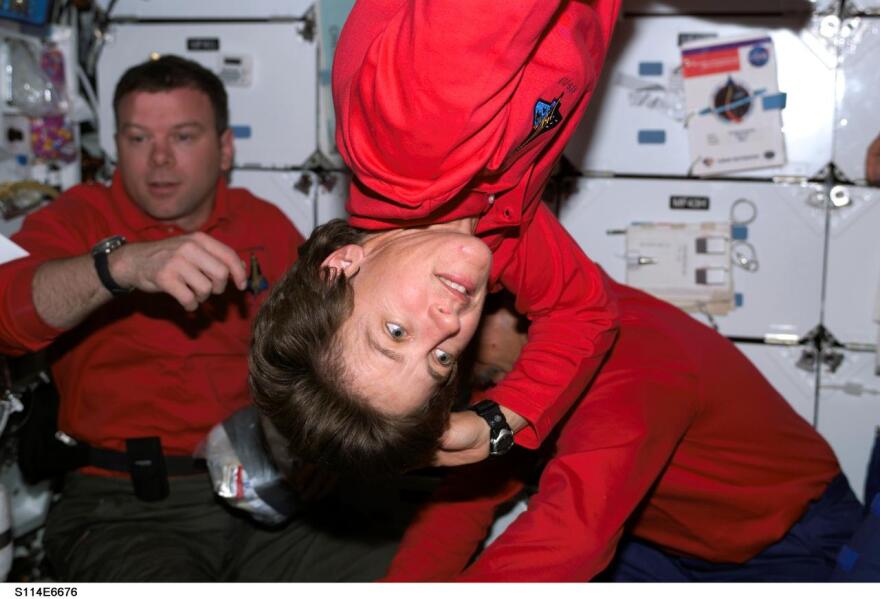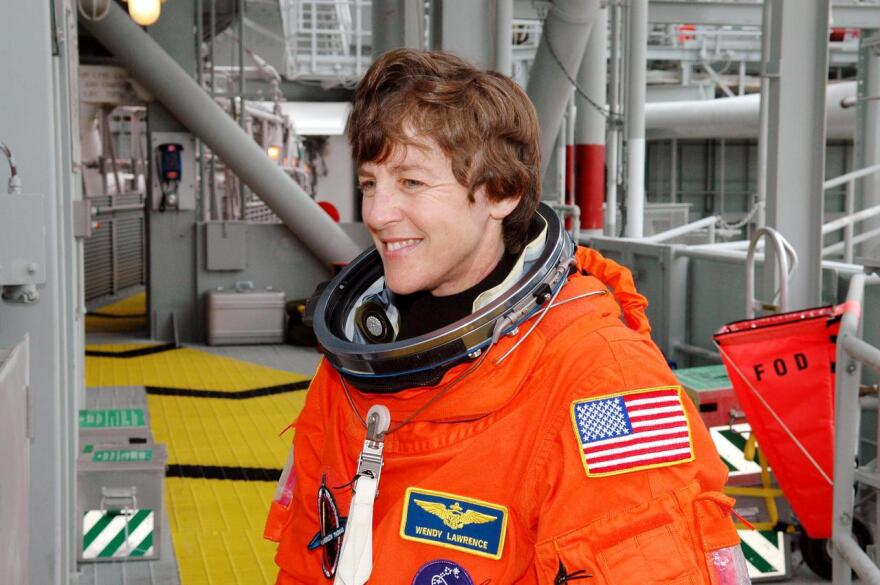In 1995, Space Shuttle Endeavour blasted off from NASA’s Kennedy Space Center, carrying a crew of seven, including mission specialist Wendy Lawrence. It was the first of four space missions for Lawrence, a journey that started decades earlier when as a kid, she watched the first people walk on the moon in 1969.
“I don't know what it was about watching Neil Armstrong and Buzz Aldrin do something that had never been done before,” Lawrence said. “But I couldn't take their eyes off the screen and I thought ‘yeah I wanna be an astronaut.’”
That journey included countless hours training as a helicopter pilot and Navy captain before Lawrence joined NASA as an astronaut, where she logged 51 days in space.
Lawrence said she will never forget that first moment when she left the planet.
“I finally did it,” Lawrence said. “I'm up here now, and I'm living my dream.”

Inspiring explorers
During her career journey, Lawrence said people around her asked her why she thought she could fly to space at a time where men were mainly astronauts. It was Star Trek that partly inspired her, including the ship’s female officer.
“I saw people who looked like me, Lieutenant Uhura, I was like, hey, there are women flying in space,” Lawrence said. “So it didn't even cross my mind.”
NASA’s first female astronaut, Sally Ride, flew to space in 1983. A decade later, Lawrence joined the astronaut corps. While she understood the gravity of being a female astronaut, her colleagues just wanted to be the best at their jobs.
“It didn't even cross my mind that, oh, you might be the minority,” Lawrence said “I look around like that are women everywhere? This is great.”
Lawrence is a part of the Astronaut Encounter program at the Kennedy Space Center Visitor Complex where she meets visitors and recounts her own journey.

Lawrence said she is hopeful to inspire the next generation of astronauts. Above all, Lawrence says the most important advice she can pass along to those hoping to follow in her footsteps is to simply try.
“You see those kids that are dressed in the flight suits, and they have the same dream,” Lawrence said. “And you realize, I am here, to nurture that dream. You have no idea how that journey is going to play out until you start to take the steps.”
The opportunity for women to reach orbit
The journey for American Women to fly to space wasn’t easy. In the 1960’s as NASA was training its first astronauts, all men, 13 women participated in similar training, but didn’t fly to space.
But in the late 1970’s,University of Central Florida historian Amy Foster, said the Space Shuttle program gave women that chance.
“More women have had that opportunity that those levels of education and are now eligible to fly on the space shuttle,” Foster said.
Foster said the Space Shuttle program put a focus on science, and opened up the astronaut corps to women with an advanced degree.
“It was the scientists who were important, the creation of the Mission Specialist possibility, really changed access for women in a way that didn't exist through kind of that old program,” Foster said.
Above all, Foster believes that diversity is crucial for NASA’s mission, including gender. Soon, NASA will send the first Woman, Christian Koch, on a mission around the moon.
“Being able to see people who look like you, in those jobs that you imagined for yourself, it creates a sense of awareness that this is possible,” Foster said.





